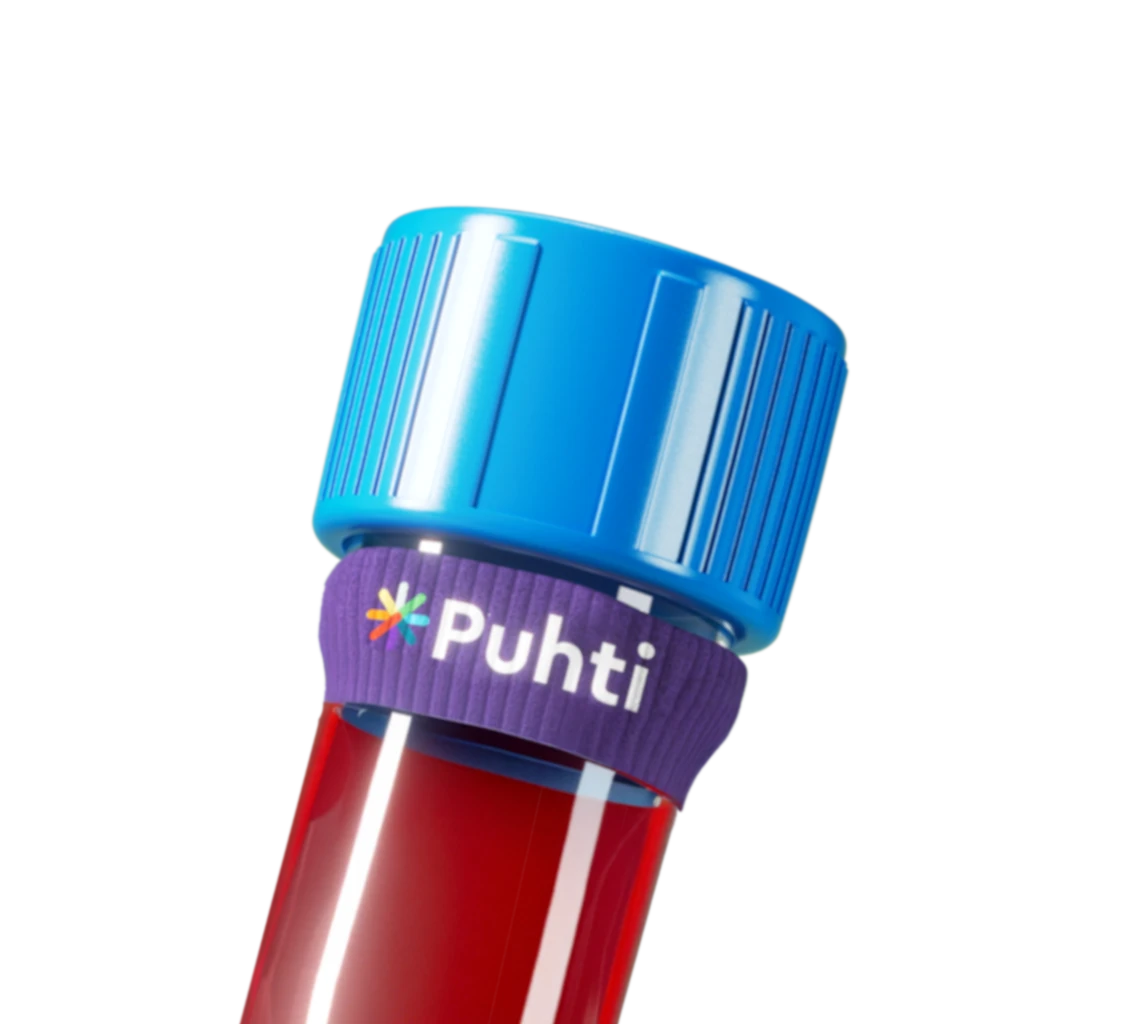
Thyroid-stimulating hormone (TSH) is a hormone that regulates thyroid function
TSH or thyroid-stimulating hormone is secreted by the pituitary gland. TSH is tested when examining thyroid function.

Thyroid-stimulating hormone (TSH) is a hormone that regulates thyroid function
TSH or thyroid-stimulating hormone is secreted by the pituitary gland. TSH is tested when examining thyroid function.
Thyroid-stimulating hormone (TSH)
- Thyroid-stimulating hormone is the first test that is carried out when examining thyroid function.
- TSH is essential for the production of the thyroid hormone, thyroxine.
- TSH can be tested due to symptoms of fatigue, for example.
What is thyroid-stimulating hormone (TSH)?
TSH or thyroid-stimulating hormone is secreted by the pituitary gland. TSH is tested when examining thyroid function. Thyroid-stimulating hormone is essential for the production of the thyroid hormone, thyroxine.
The thyroid affects the functioning of the whole body. It regulates metabolism, affects our energy levels and mood, and much more.
The TSH level is the primary investigation when suspecting thyroid underactivity or overactivity. Symptoms of these conditions include changes in weight, fatigue, low or high blood pressure, and mood changes.
TSH Reference Values Reference values for Thyroid Stimulating Hormone (S-TSH) are as follows:
Adults and over 16 years 0.5 – 3.6 mU/L TSH levels fluctuate throughout the day, which is normal. The concentration is highest during the night and early morning; the level decreases towards the afternoon.
Shift work affects TSH levels. For permanent night shift workers, it is recommended to take the sample within a few hours after waking up, between 8 AM and 6 PM.
Reference values may vary between laboratories and depending on the analysis method. Puhti samples are taken and analyzed in Mehiläinen laboratories.
High TSH value
A high TSH value may indicate the following conditions:
- Primary hypothyroidism. The concentration may increase as early as in the subclinical state. Subclinical means that the hypothyroidism is latent.
- Autoimmune thyroiditis or Hashimoto’s disease An inflammation of the thyroid gland in which T and B lymphocytes accumulate in the thyroid gland.
- Acute infection or illness.
- Age. People over the age of 65 may have higher TSH levels.
- Secondary hyperthyroidism. A condition in which hyperthyroidism is caused by damage to the hypothalamus or hypophysis.
- Heterophile antibodies. Treatment with thyroxine will not help, the cause of the symptoms requires further examination.
Low TSH value
A low TSH value may indicate the following conditions:
- Primary hyperthyroidism. TSH is decreased because there is too much T3 and T4 in the blood.
- Secondary or tertiary hypothyroidism. In other words hypothyroidism caused by the hypothalamus or the pituitary gland. The thyroid hormone production is also low.
- Nodular thyroid disease.
- Treated Basedow’s disease. Treatment of hyperthyroidism with medication, surgery or radioactive iodine therapy usually leads to hypothyroidism.
- Toxic thyroid adenoma. A benign nodule that produces too much thyroid hormone.
When is TSH measured?
TSH level in the blood is examined to diagnose hyperthyroidism and hypothyroidism, as well as to evaluate the effectiveness of thyroid hormone replacement therapy. TSH can also be measured when the thyroid’s health needs to be investigated.
If there is a genetic predisposition to thyroid disease, it is advisable to measure the levels in a timely manner.
Fatigue, weight gain, and other symptoms associated with thyroid overactivity or underactivity are good reasons to measure TSH levels.
Blood tests are conducted regularly during thyroxine treatment to ensure its effectiveness. For investigating thyroid disorders, TSH measurement is primary but not the only test.
If TSH level is outside the reference values, determining free T4 hormone levels is necessary. Thyroid-stimulating hormone is highly sensitive to changes in thyroxine hormone levels.
In the following cases, the examination of TSH does not yield a reliable result:
- people with central hypothyroidism caused by the pituitary gland
- hospitalised patients taking TSH-lowering drugs (dopamine, glucocorticoids)
- people whose substitution or suppression therapy is changed
- people with acute psychiatric illness
How can I get my TSH tested?
You can order the TSH as a single test from Puhti’s online store. Add the desired products to the shopping cart and complete all the tests at once.
The TSH test is included in the following test packages:
- Puhti laboratory package
- Extensive Puhti laboratory package women
- Extensive Puhti laboratory package men
First, order the tests you need via Puhti. You do not need a doctor’s referral. You can visit one of our many laboratories in Finland. Most of the laboratories also serve customers without an appointment. You will receive an easy-to-read results report.





